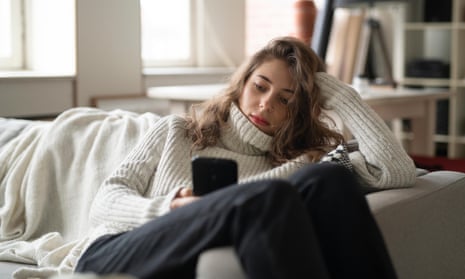Women in the UK are bearing the emotional brunt of the coronavirus pandemic, experiencing greater anxiety about its impact than men, polling has found. Although men are more likely to die from Covid-19, research by Ipsos Mori and the Fawcett Society found women were disproportionately affected in other ways.
Six out of 10 women said they were finding it hard to stay positive day-to-day, compared with just under half of men. Half of women were very concerned about the risk the virus posed to the country, compared with a third of men. Women were also more likely to have their employment impacted, with a third saying their workplaces had been closed, compared with a quarter of men.
Sam Smethers, Fawcett Society chief executive, said: “Women are bearing the brunt of the emotional and financial fallout. Government needs to take a gendered approach as we lift the lockdown and begin to turn our attention to how we emerge from this crisis. One thing is certain, an economy which leaves women and girls behind will fail to recover at all.”
Despite – or perhaps because of – their concerns, the analysis found that women were more likely than men to have helped others during the pandemic. More than four in 10 said they had contacted someone lonely or vulnerable, compared with a third of men. Women were also more likely than men to have checked on friends and family to ensure they were OK and to have delivered supplies to someone self-isolating.
They were more likely to be uncomfortable with lifting the lockdown, whether sending children to school, using public transport, shopping or going to large gatherings, and more likely to have adhered to social distancing. This was despite three-quarters of women saying that visiting a selection of friends and family would make them feel more optimistic, compared with seven in 10 men.
Campaigners say women are more likely to be on the frontline delivering essential services in low-paid and insecure work and caring for children and older relatives, as well as significantly more likely to be put at risk of self-isolating with an abusive partner.
In March, more than 50 organisations signed a statement calling on the government to consider the specific challenges faced by women as a result of the crisis.
The survey was conducted online among 18- to 75-year-olds between February and May and weighted to reflect the population profile.
